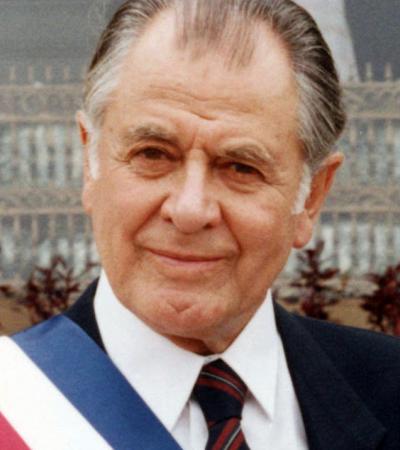Patricio Aylwin Azócar is the founder of the Corporation for Justice and Democracy, which advances programs--primarily for young people--that promote democratic values and social development. He collaborates with the World Development Bank in its "Social Dialogue" project, designed to generate national consensus in Latin American and Caribbean countries to put into practice State policies confronting major social problems. To date, the program has been carried out in the Dominican Republic, Guatemala, Ecuador, and Honduras.
Aylwin's principal concern continues to be raising awareness around efficient measures for confronting the tragedies of poverty and of the deep inequalities that engender injustice and threaten peace in our globalized and prosperous world.
In the political sphere, Aylwin was appointed to preside over the Latin American and Caribbean Commission on Social Development after he was elected President of the Republic of Chile for the 1990 - 1994 term. During his term, President Aylwin succeeded in re-inserting Chile into the international community of nations by calling for "giving content to an international social justice" before the General Assembly of the United Nations, which led to the UN agreement to convoke the World Summit on Social Development in 1995.
As the Chief of State, Aylwin succeeded in establishing a government of national reconciliation whose fundamental objective was the reconstruction and consolidation of democracy in the wake of human rights violations committed during the Pinochet dictatorship. To reach his objectives, he formed a commission to produce a report that would strike a deep emotional chord in the country, clarifying the fate of victims of human rights violations. As a result of this report, Aylwin created the Reparations and Reconciliation Corporation, charged with vindicating and honoring victims, and continuing to clarify unresolved cases.
To democratize institutions and promote social justice, Aylwin instituted various constitutional and legal reforms, moving forward with regionalization and communal administration involving labor law, protection of the environment, and treatment of women, youth, and indigenous peoples. In a parallel effort, Aylwin put into practice a socioeconomic policy that helped to bring about important progress in housing, health, and education. The results of that policy translated into overall economic growth, along with sustained reduction of inflation and unemployment; substantial growth of internal savings, worker wages and productivity, and housing; and finally, considerable reduction of poverty.
A federal senator from 1965 to 1973 and president of the Senate from 1971 to 1972, he participated in efforts to reestablish the democratic system interrupted by a military coup in Chile in 1973. When the leadership of the Christian Democratic Party, presided over by Aylwin, became aware of the military dictatorship's systematic policy of violation of human rights and its regressive socioeconomic policy, Aylwin supported the efforts to construct a democratic alternative. He was one of the founders and the vice president of the Group of Constitutional Studies, a pluralist academic organization that sought to administer a consensus around a constitutional democratic alternative for the Republic.
After Salvador Allende's victory in the 1970 presidential elections, Aylwin had been involved in the passage and implementation of the Statute of Constitutional Guarantees that led to Allende's election as president of the Republic. A strong opponent of the Allende government, he attempted to achieve consensus solutions that could save the democratic institution. As president of the Christian Democratic Party and as a seven-term senator, Aylwin led the movement that most decisively supported the reform policy of President Eduardo Frei Montalva.
Since his youth, Aylwin has been profoundly committed to the values of liberty and justice. Inspired by Christian humanistic concepts, as a politician he always sought the greatest good for Chilean society, based on reconciling the need for vigilance and the perfection of democracy in the political sphere with the quest for socioeconomic progress and justice.
As a result of this orientation, he worked to effect what was called the "Revolution in Freedom" between 1964 and 1970, actively participating in agrarian reform, nationalization of the copper industry, education reform, and promotion of civic values.
A practicing lawyer, he taught administrative law at the University of Chile from 1946 to 1967 and at the Catholic University from 1952 to 1960. He was also a professor of civic education and political economy at the National Institute. He was the secretary of the Chilean Institute of Legislative Studies, a national board member and vice president of the College of Lawyers.
Aylwin was born in Viña del Mar, Chile. He received his bachelor's degree in juridical and social sciences at the University of Chile in 1943, earning highest honors.






